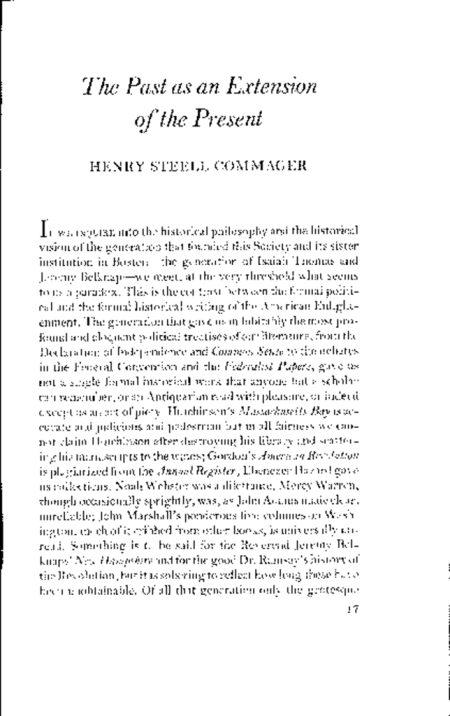Preoccupied with history, the American Enlightenment generation produced eloquent political treatises without a single formal historical work. History to that generation was a moral enterprise, in the tradition of history as philosophy, and human nature was viewed as always the same. John Adams' "Old World" (European Enlightenment) view, however, found men always greedy, ambitious, and vain, and governments all tending toward tyranny. Thomas Jefferson challenged Adams and Enlightenment thought, signalling the beginning of Americanism and American romanticism, and seeing history as prospective rather than retrospective. The most original "New World" contribution to historical thought was the idea that history is not exhausted but that man may begin again in a new world. Besides rejecting the lessons of the past, the Jeffersonians Americanized the idea of progress by democratizing and vulgarizing it to include the welfare of the common man. As Romantics deeply concerned with the past, collecting source materials and founding historical societies, the Founding Fathers were animated by principles which seem very distant now; they saw man in control of his destiny, saw virtue as a distinguishing characteristic of a republic, and were concerned with happiness, progress, and prosperity. Thomas Paine, combining the spirit of rationalism and romanticism, pictured a time when America's innocence would sound like a romance, and concluded that the fall of America could mark the end of "the noblest work of human wisdom." Undocumented.
The Past As an Extension of the Present.
Publication Date
Volume
79
Part
1
Page Range
17-27
Proceedings Genre
